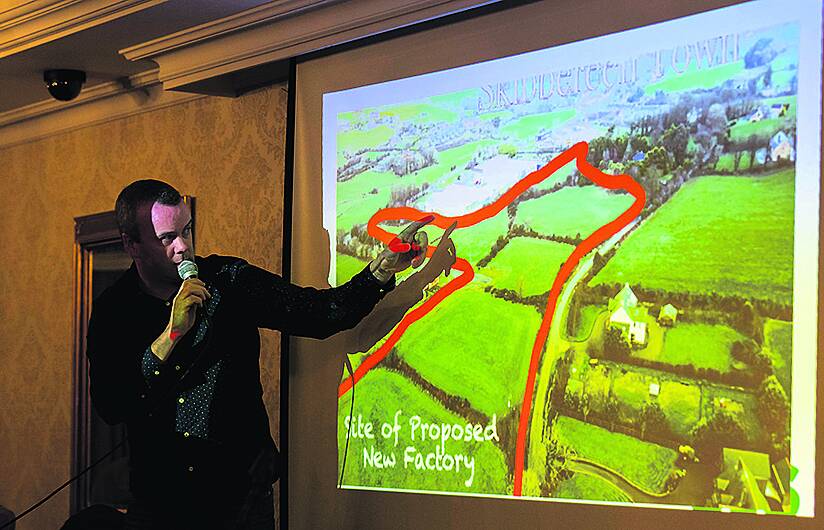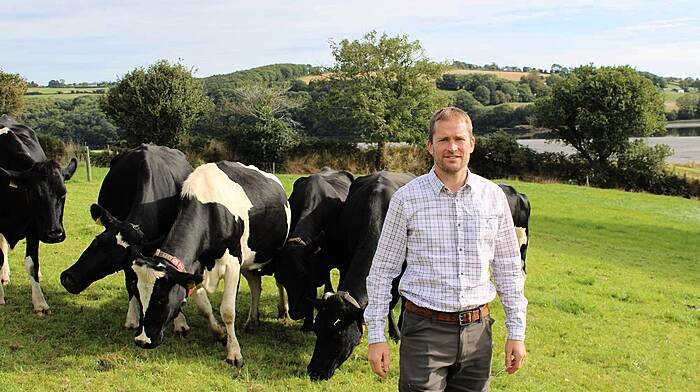In January 2016, it was announced that there was a company with international credentials looking to set up a plastics factory that would create 50 jobs in Skibbereen, it was universally welcomed by local public representatives
WHEN, in January 2016, it was announced that there was a company with international credentials looking to set up a plastics factory that would create 50 jobs in Skibbereen, it was universally welcomed by local public representatives.
At a meeting of the West Cork Municipal District, the councillors formally supported a request by the IDA – the owners of the site at Poundlick in Skibbereen – to amend Skibbereen’s Local Area Plan and rezone it for ‘light’ industrial use.
The councillors unanimously approved the decision to reduce the town’s green belt by about 2.5 hectares and to increase the adjoining industrial site at Poundlick from 6.2 to 8.7 hectares.
Each councillor spoke with enthusiasm about what the new factory could do in terms of transforming the fortunes of the town, but there is just one councillor – Cllr Joe Carroll (FF) – who still holds that point of view.
As public disquiet grew, more and more of the councillors began to change their minds.
Many agreed that a plastics factory, especially one that would use the same waste water network as the rest of the town – a system that leads into Roaring Water Bay – might not be the best fit for an environmentally-conscious town like Skibbereen.
Prior to their conversion, however, the rezoning process was adopted by the Council in April 2016, and, three months later, the Council met with representatives of RTP Company, the parent company of Daly Products Ltd.
Early in 2017, a planning application that was made by Daly Products Ltd was deemed invalid, for technical reasons, and in April, the company resubmitted its application for planning permission.
A total of 39 submissions – including observations and objections – were later lodged with Cork County Council.
The Council subsequently wrote to the company requesting additional information, which was delivered in November 2017.
And on December 19th 2017, Cork County Council granted Daly Products Ltd permission to construct a thermoplastic compounds production facility at Poundlick.
An appeal was formally lodged with An Bord Pleanála, but the Bord deferred its decision to November 29th 2018, when it ultimately upheld Cork County Council’s decision to grant planning.
This was despite the fact that its own inspector, Hugh Morrison, expressed concern that Poundlick had been rezoned for ‘light’ industry and the proposed factory could not be deemed ‘light’ and would therefore risk a contravention of the Local Area Plan.
Mr Morrison was also of the opinion that the development would present ‘serious injury to the amenities of residential property in the vicinity of the site, and the jeopardising of public health.’
In January 2018, Save Our Skibbereen (SOS) was formally established and throughout that year local opposition grew. In time, the number of people attending public meetings went from 40 at the first meeting in the West Cork Hotel, to around 400 at subsequent meetings.
High profile West Cork residents like film producer David Puttnam and actor Jeremy Irons also added their voices to the campaign.
SOS launched a fundraising drive for a legal fight and in January of this year, they were gratified when the High Court granted them permission to seek a judicial review of ABP’s decision.
SOS had based its application for a judicial review on the fact that Cork County Council had not requested an Environmental Impact Assessment, and that An Bord Pleanála’s own inspector expressed serious reservations about the rezoning and the impact the factory could have on public health.
Early this August, there were celebrations locally when the High Court quashed the decision made by An Bord Pleanála. But the chairperson of Save Our Skibbereen, Brendan McCarthy said: ‘The issue has only been fully and finally put to rest now that RTP – as of their letter to Cork County Council, dated August 27th – has formally withdrawn its planning application.’








